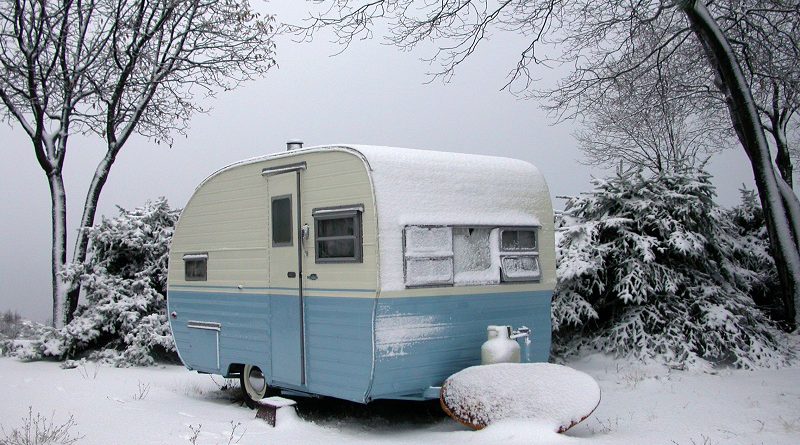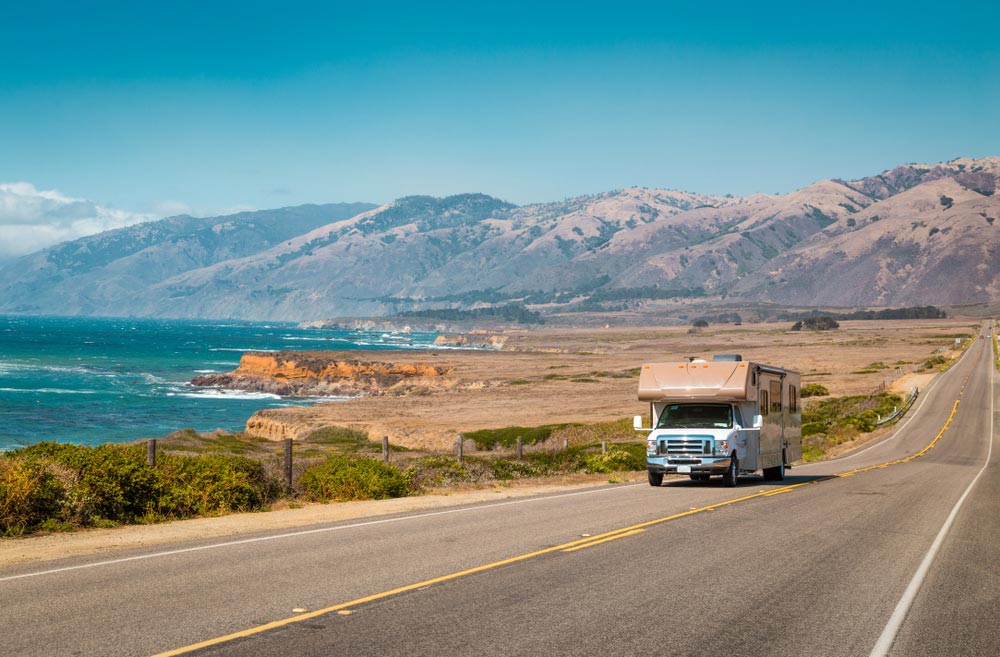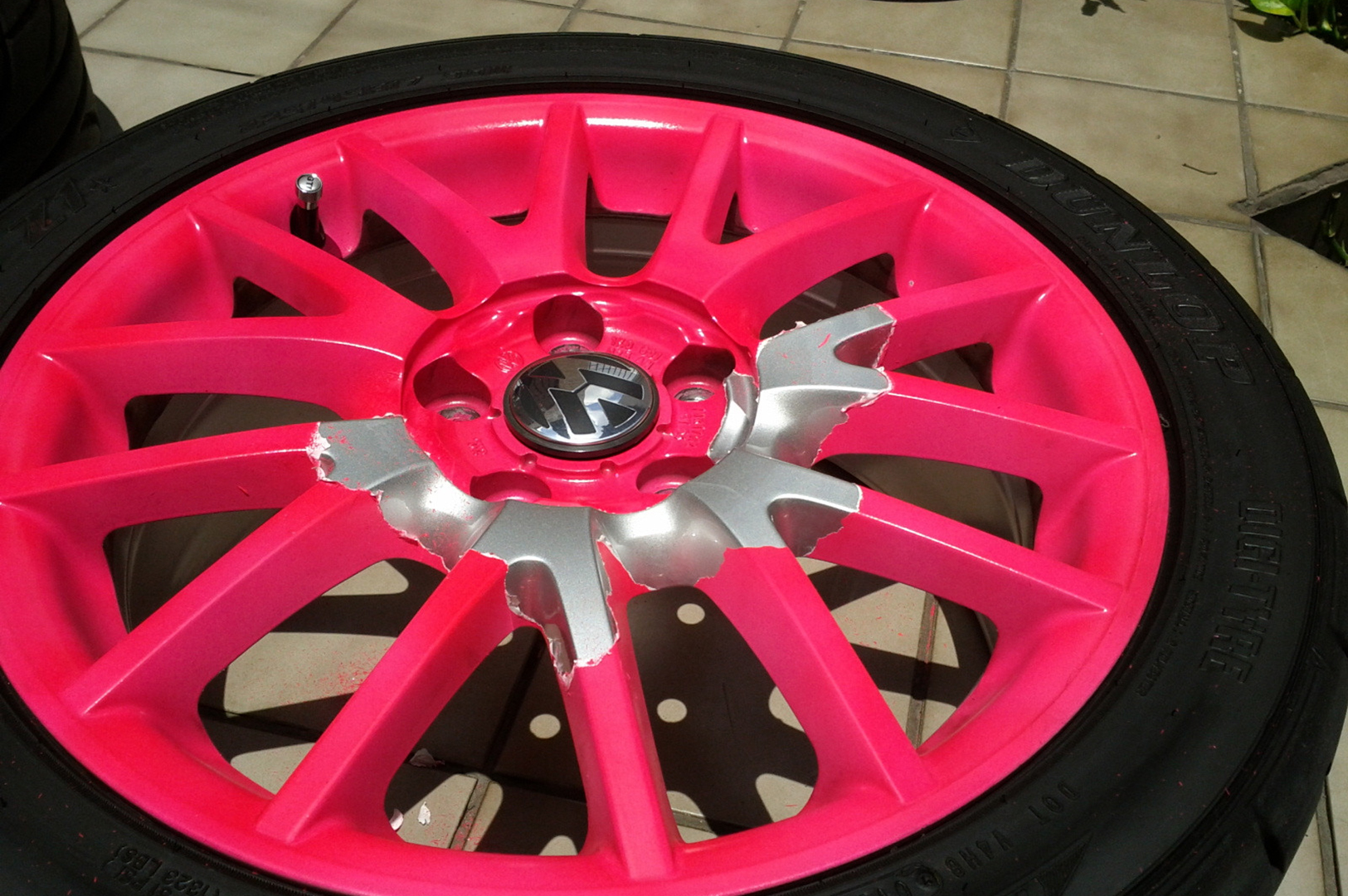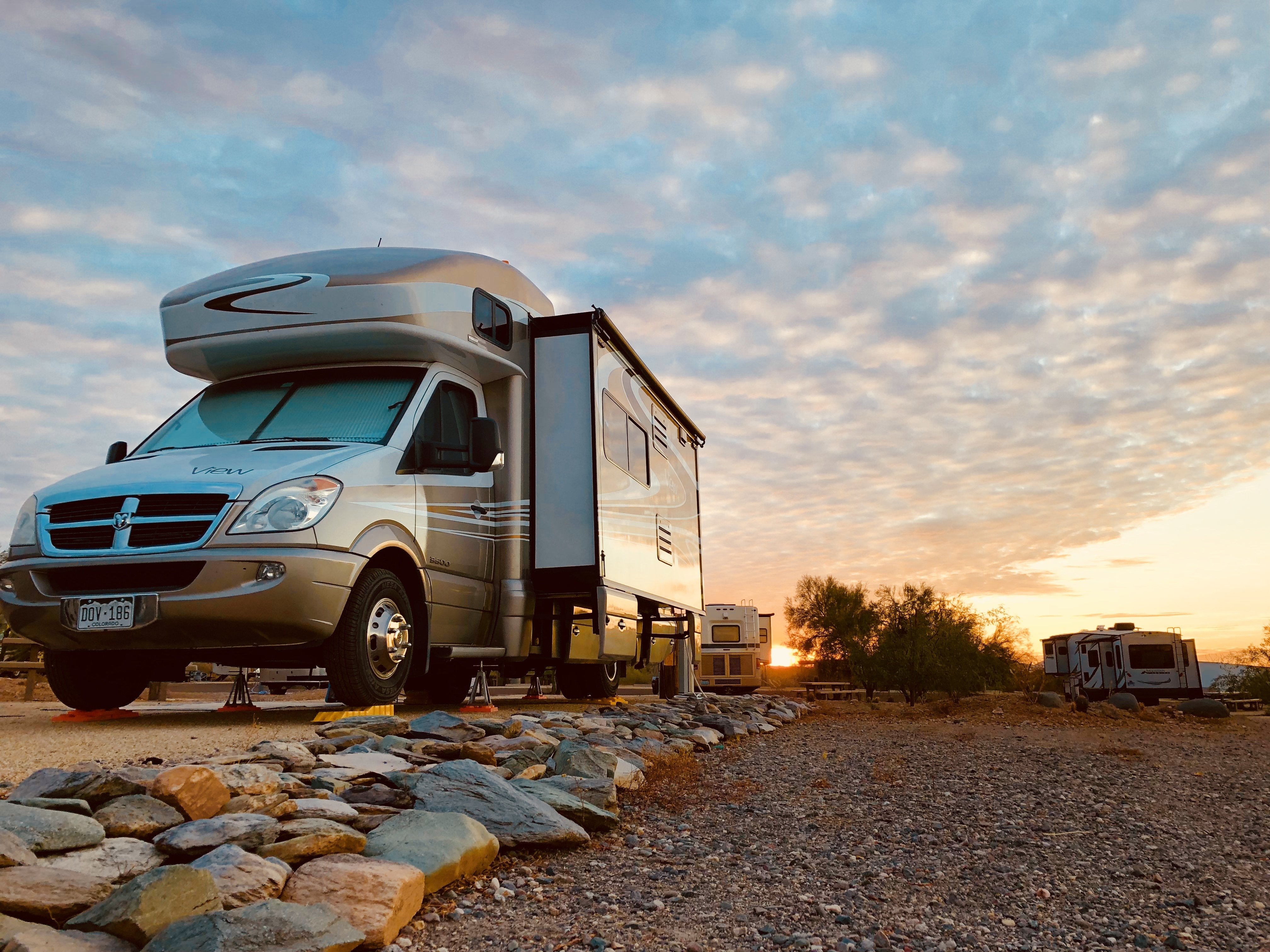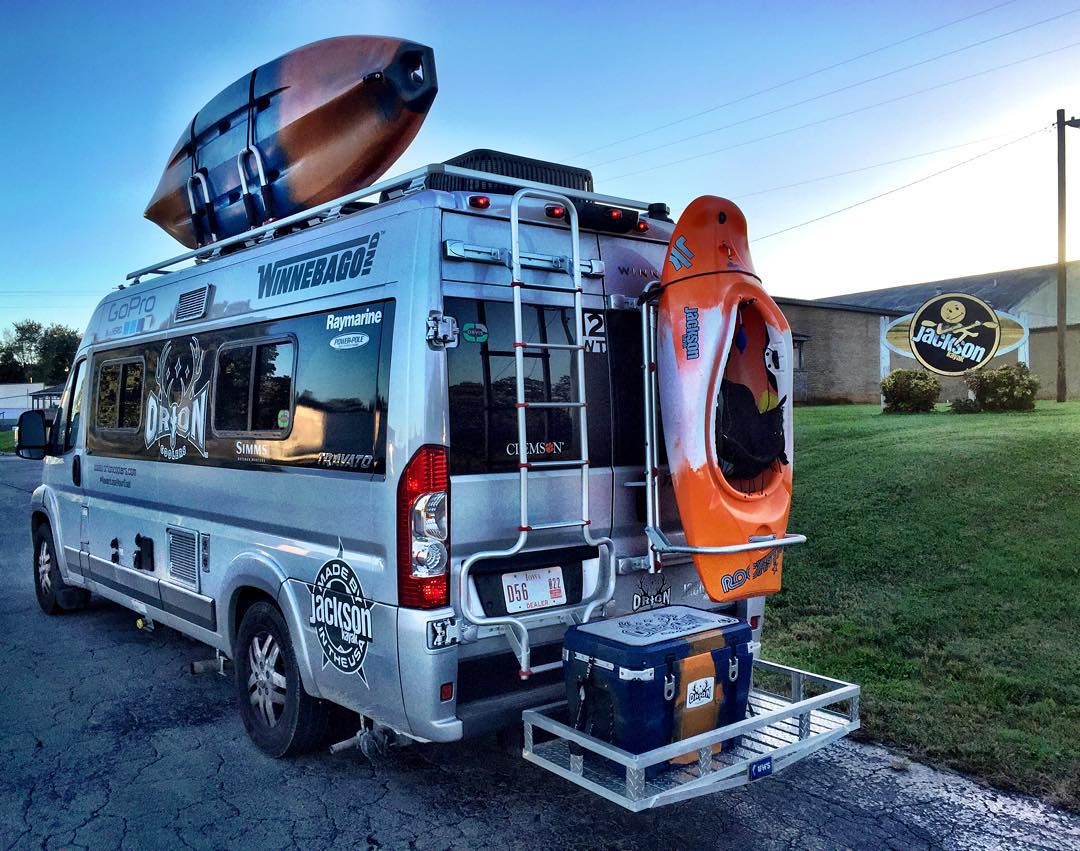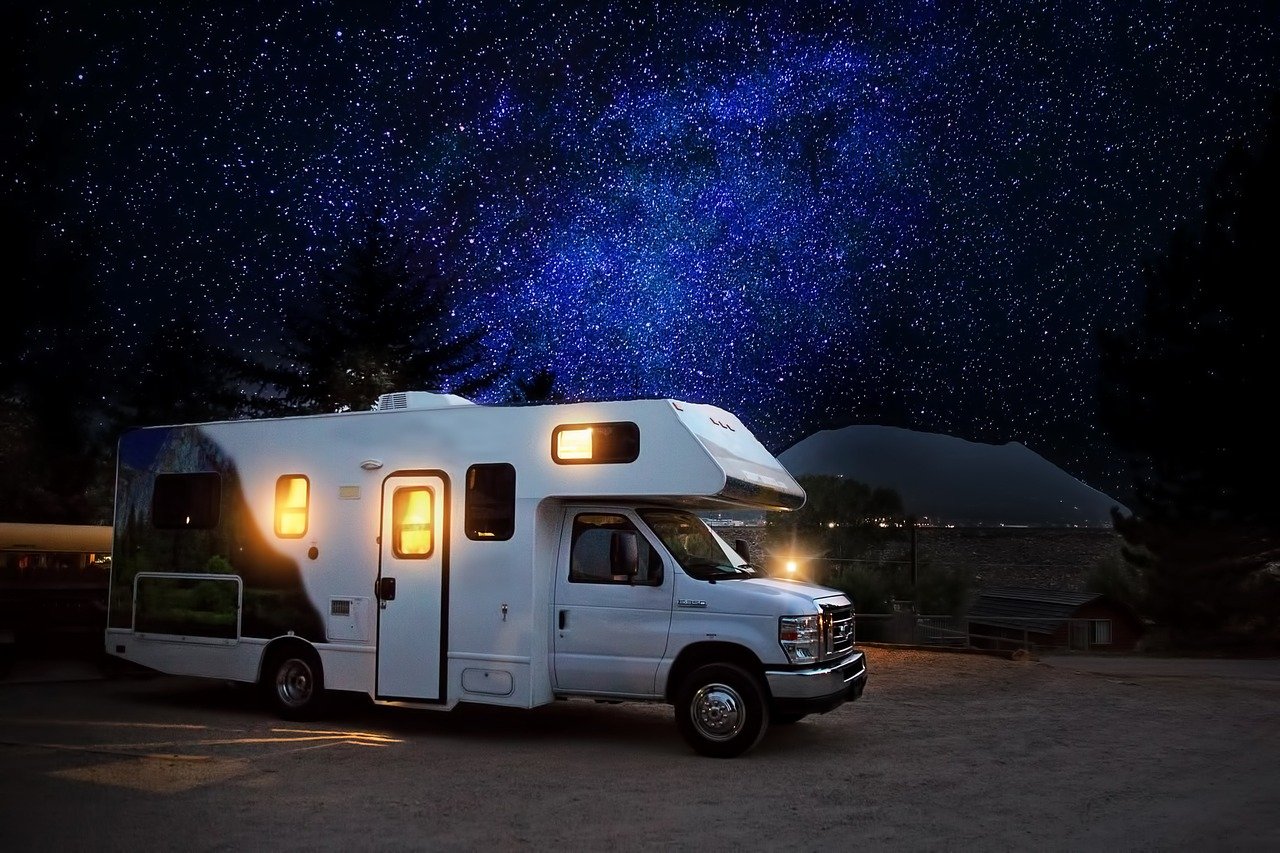Gone are the days when people used to go to the old-fashioned off-the-grid camping. We’ve entered the ‘stay connected’ era when people love to be connected to their family and friends and are addicted to staying updated on the social media. Many full-time RVers also need the best RV Internet options to work from anywhere, anytime.
The RV Internet can be a blessing only if it is a good connection. The strategy to adopt is going for the option that works best in your location and optimize it. Choosing the Internet for RV is a bit tough because you move to different places and may need to switch to a different service each time you relocate.
RV Internet solutions are not something like you have in your home. You are on the road and are constantly on the move. It is common to face problems like data caps, varying data speeds, and irregular connections. To find out the best RV internet options, you should learn the choices you have, their positive and negative sides, and the kind of user you are.
Contents
The Available RV Internet Options
When you are talking about the Internet for RV, there are four choices – cellular, public Wi-Fi, satellite, and cable/DSL. The first two selections are available in campground and marinas, and are the primary options for mobile Internet for RV. The satellite Wi-Fi for RV has its own pros and cons and it provides coverage for those who are boondocking. If you live in a specific campground for quite some time, like for a season or a couple of months in a year, subscribing to cable or DSL will be the best alternative.

Here is a breakdown of all RV internet options so that you can subscribe to the best service depending on your travel needs.
Cellular Data
The one-stop shop for all of the telephone and Internet for RV needs. It’s the most accessible service in almost all the places across the United States. Truly mobile in nature, it provides excellent service and extremely fast data transfer.
You have to choose a carrier and a data plan, which will give you Internet access anywhere that is under the coverage of your carrier. It is more secure and reliable than public Wi-Fi hotspots but using too much data could be expensive.
It is also possible to convert the cellular data to create Wi-Fi for RV-ers or even an Ethernet hardwired network. The devices you will need are a cellular modem, a USB model, and hot spotting of a mobile device. A mobile router will come handy if you need to create an advanced network.
Some of the carriers that offer good-value cellular data plans are Verizon, T-Mobile, AT&T, and a few others. For places where cellular coverage is weak, using a cell phone signal booster or an external MiFi antenna will help with procuring a better speed.
Satellite Internet Service
The satellite service is not the usual choice of the Internet for campers except for boondocking. It is a dedicated Internet service that you can get from a satellite provider. The service is expensive and requires heavy-duty gear to set up the connection at each stop. Unless you are in a remote place, going through all the pains to set up the satellite Internet is not worthwhile.
RV DataSat and HughesNet Gen 5 are two providers that offer the service. It is costly but it works where cellular devices do not.
Campground or Public Wi-Fi
One of the most popular RV Internet options because it is cheap or free and does not require any extra equipment except for a Wi-Fi enabled device like a laptop or cell phone. Most campgrounds offer it free or for a small fee. Also, most public Wi-Fi networks that you find in libraries, marinas, motels, restaurants, coffee shops, and other places are completely free of cost. There are loads of paid Wi-Fi networks too like Xfinity and Boingo.
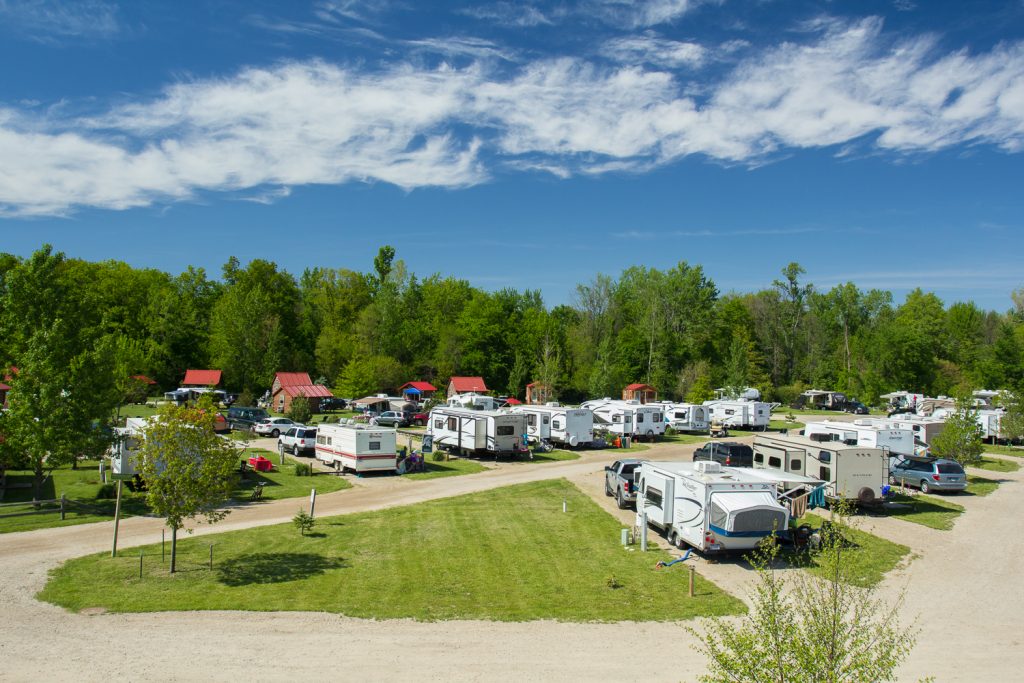
The Wi-Fi is a good solution for Internet for RV and has the potential to be really fast, but you will get a horrible experience in most campgrounds. It is good for basic surfing but nothing more because the speed gets divided up when plenty of people share the same network.
You can spend money on signal extending gear and there are several products that can be the best Wi-Fi booster for RV. But, before doing so, take you mobile closer to the access point and see if it improves the signal. Also, check if the user experience has been improved. If it does, a booster is likely to improve the speed.
DSL or Cable Internet
Unlike other services, the DSL (Digital Subscriber Line) is not an RV wireless internet option. However, you can consider it to be the most high speed internet for RV. The provider uses an existing telephone network to provide a high-speed bandwidth connection through a wall outlet. It transfers digital signals over standard telephone lines but does not interrupt with the frequencies that the telephone uses.
DSL or cable is the best RV Internet service but it is bound to a specific location. You have to subscribe for it from your RV site.
What are the Best RV Internet Options?
The best is the one that is ideal for your current location. There is no single solution for everyone. As a traveler, you can use one or a couple of approaches depending on your Internet needs, travel style, service availability, and budget.
One option working fine in one location may become useless in the next destination. A combo service seems to be the best solution. For example, free public Wi-Fi for sending informal e-mails or surfing the net. However, when you need to send official e-mails or check your banking information, a secure connection like a cellular service seems to the best option. Using the public Wi-Fi is a blunder for any security-oriented task because the channel to transfer the information is not secure.
A high-speed DSL connection will be delighting when you are stationed somewhere for a couple of months. Similarly, a satellite Internet service will keep you connected in a remote area where other services are unavailable.
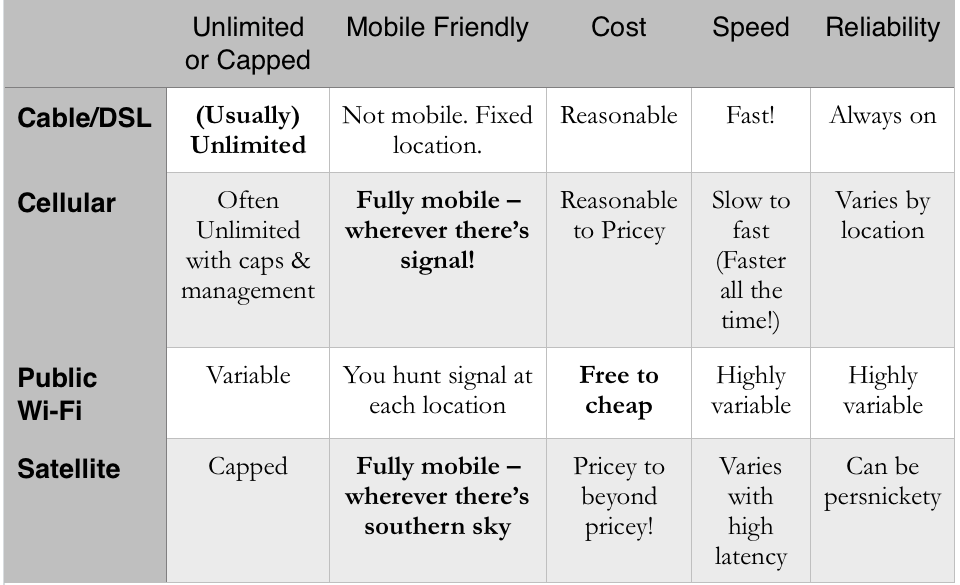
The Right RV Internet Options for Your Needs
If you are still confused, take notes of your daily or monthly Internet usage and determine the best budget-friendly solution for that.
For example, if you are a casual user who does not need more than one or two hours of Internet daily for basic surfing, social media, and e-mail handling, a 2-3 GB of cellular data plan will be enough. You can also cover it with free Wi-Fi but don’t send sensitive information over that network.
If you are a social media savvy along with an insatiable addiction to YouTube or other streaming sites, you will need a bigger data plan. Free Wi-Fi will not be ideal for video streaming or uploading plenty of photos the speed is horrible in most spots. Subscribing to a 10-20 GB will get you covered.
If you are a stay-at-home (RV, in this case) worker and need Internet access most of the times, an unlimited plan seems to be the right choice. You can go with a 40 GB data plan or something similar offered by your carrier.
Last Updated on May 24, 2019

